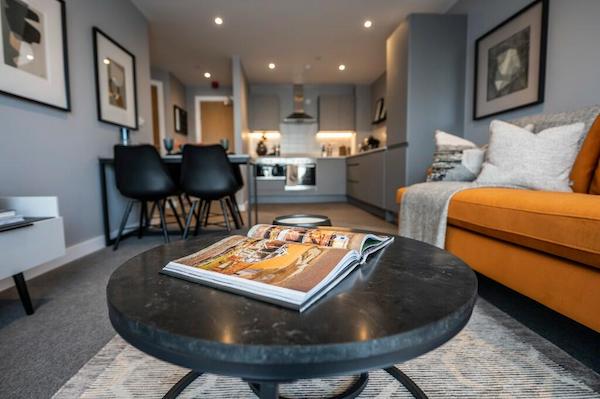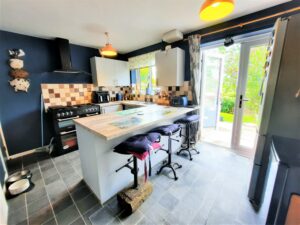
Buying part of a home through the Shared Ownership scheme can be a great way to get your foot on the property ladder, especially during a period of time when owning a home is becoming more difficult. Before deciding if Shared Ownership is suitable, most people think ahead and ask questions about what the resale process will look like, should they want to sell in the future. One of the most common questions we hear is, “Will I make a profit from my share of a Shared Ownership property?”
The short answer is, that it’s possible to make a profit on a Shared Ownership property, just as it is any other home. However, it’s important to remember that any profit you make would be relative to the share you’re selling.
Keep reading to find out more about how you can make a profit from shared ownership properties.

Purchasing a shared ownership home can be an effective way for first-time buyers to get their foot on the property ladder. However, as with any house purchase, it is often a concern for buyers whether or not they will turn a profit when it comes to shared ownership resales. If done correctly, selling a shared ownership property can be profitable. Take a look at the example below to see how.
If you are eligible to buy a 35% share in a home worth £150,000, at the time of purchase your share would be worth £52,500. If you later sell that share and the property turns out to be valued at £175,000, your share would be worth £61,250 which is an increase of £8,750. This number could be a profit but there are factors you need to consider, such as the cost of selling and the cost of moving.
Find out more about the shared ownership resales by reading our detailed blog.
[Image]
If you are looking at selling your shared ownership property, there are a number of considerations before a sale can be made. These include:
Unfortunately, selling any type of property can be challenging. There are a number of different aspects to consider such as organising valuations, viewings and various delays. Selling a shared ownership property can be even more complicated than a regular property. If you are planning on downsizing or relocating, selling your shares of a shared ownership property may be essential. If you do not own 100% of the property, you are required to contact the housing association first. In some instances the housing association may wish to buy your house back, if they wish to do so then this process is fairly straightforward.
If the housing association does not wish to buy your shares, they will instead have to find an eligible buyer. An eligible buyer must meet a number of criteria, and so the number of eligible buyers can sometimes be quite limited.
After you have contacted the housing association, the next steps for selling your shared ownership home are:
Here at Plumlife, we’re proud to have a Shared Ownership resale estate agency that helps lots of people through the resale process, ensuring customers maximise their assets and reduce any hassle. If you are looking at selling a shared ownership property, why not speak to our Plumlife Move team? Contact us today to find out more.
If you have staircased to 100% by the time you come to sell your property, instead of first contacting the housing association to sell your property you can sell on the open market. This means that you will keep all of the money that you make from the sale, up to the full value of the property.
If you only own a percentage of your shared ownership home, you may be able to complete a back-to-back staircase. This would allow you to purchase all the remaining shares and sell the whole property. You will need to receive a valuation of your property, but using estate agents to complete the sale is optional. Appointing a solicitor is essential, however, the fees of which will come out of your final profit.
| Cookie | Duration | Description |
|---|---|---|
| cookielawinfo-checkbox-analytics | 11 months | This cookie is set by GDPR Cookie Consent plugin. The cookie is used to store the user consent for the cookies in the category "Analytics". |
| cookielawinfo-checkbox-functional | 11 months | The cookie is set by GDPR cookie consent to record the user consent for the cookies in the category "Functional". |
| cookielawinfo-checkbox-necessary | 11 months | This cookie is set by GDPR Cookie Consent plugin. The cookies is used to store the user consent for the cookies in the category "Necessary". |
| cookielawinfo-checkbox-others | 11 months | This cookie is set by GDPR Cookie Consent plugin. The cookie is used to store the user consent for the cookies in the category "Other. |
| cookielawinfo-checkbox-performance | 11 months | This cookie is set by GDPR Cookie Consent plugin. The cookie is used to store the user consent for the cookies in the category "Performance". |
| viewed_cookie_policy | 11 months | The cookie is set by the GDPR Cookie Consent plugin and is used to store whether or not user has consented to the use of cookies. It does not store any personal data. |